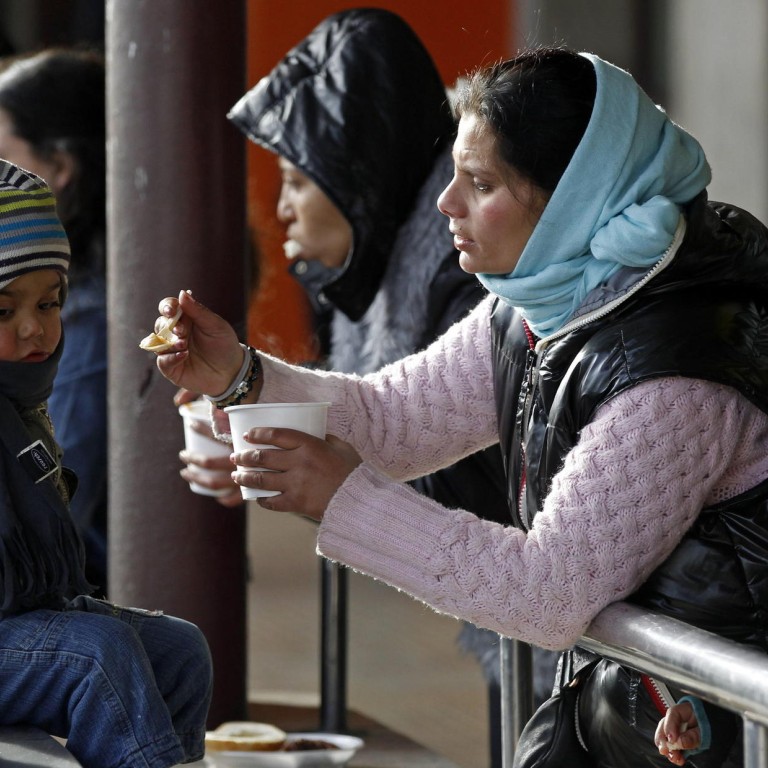
Romania's children being left behind as their parents seek work abroad
A generation is growing up with absentee parents, who are supporting their families by working in more prosperous western Europe
Tens of thousands of Romanian children are growing up parentless because their mothers and fathers work abroad, according to figures that raise questions about the extent and impact of large-scale migration on the eve of new EU rules governing Bulgarians and Romanians.

Those are just the official numbers; few parents inform the authorities about their intention to go abroad and many believe the real number could be significantly higher.
"This is a big issue for Romania," said Stefan Darabus of the international non-governmental orgalisation Hopes and Homes for Children, which runs programmes in the rural north of Romania to help children left behind. "In the cities and countryside, poverty and job opportunities take these parents overseas, but the children left behind are strongly affected by their absence.
"Those who grow up without the love or security of their parents are going to be negatively affected later in life."
In the Bucharest neighbourhood of Ferentari, one of the poorest in the Romanian capital, two dozen young children sit in a classroom during lunch, colouring in pictures of fruit bowls and playing while a teacher looks on.
The children vary in age but they all have something in common: they have one or both parents overseas.
Cristina, one of the children, says her mother is in Spain looking for work. She has been gone a month this time already, but in the past she has been away much longer, she says. Her father is no longer in the picture.
"Mum doesn't want to stay away long. She just went there to make money for me and my sister," said Cristina, a nine-year-old who lives with her grandmother when her mother is away.
"These children are in a very vulnerable situation, being deprived of their parents' affection, care and support," said Andreea Biji, a psychologist who works for Save the Children, which runs the classroom-based programme in Ferentari as well as programmes in 15 counties across the country.
Some Romanian parents have taken their children overseas with them, but for many this is not an option.
"In France, my husband earns €600 (HK$6,300) to €700 a month, which is a lot over here but not much over there," said Vasile Luminita, 28, a mother of five whose husband has been working on a construction site in France for the past 18 months.
"It is hard. Many times we have considered all moving, but he stays in a very small room and sends the money back to give us a better life in Romania."
In recent years the Romanian government has tried to push through changes to better manage the situation of children left behind, especially those in more unstable environments.
"Things have become better - there are now day-care centres where kids can be looked after and other support services," said Nicolae Gorunescu, an official with the government child protection agency in Bucharest.
He said the government had recently introduced a law whereby parents not only had to register before going overseas to work, but a judge had to approve of the chosen guardians. "The problem is a lot still don't tell the authorities that they are leaving."
